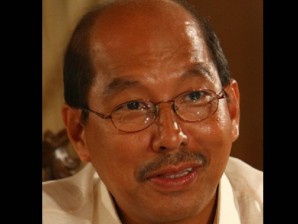Economic managers want President Benigno Aquino III to release P20 billion more to add to the government’s P72-billion stimulus package aimed at fortifying the Philippine economy amid a slowdown in the United States and Europe, Budget Secretary Florencio Abad said Monday.
Abad made the disclosure as senators urged Malacañang to renew government spending if it wanted to spare the country from a possible spillover arising from protests in Western countries against capitalism and corporate greed.
Senator Edgardo Angara said “protests against rampant unemployment now hounding the Western countries could occur here if we do not create jobs and continue the practice of underspending.”
A slowdown in the economy has been partly blamed on underspending by the Aquino administration as it scrutinizes infrastructure and other projects to prevent corruption.
“We need to spend the budget properly and as fast as we can” since the country is not suffering from a fiscal crisis, said Senator Ralph Recto, chair of the Senate ways and means committee.
Abad said the release of the additional P20 billion would depend on the ability of government agencies to spend first the P72 billion.
Speaking to reporters as he awaited Mr. Aquino’s arrival at the Philippine International Convention Center in Pasay City, Abad said the economic team had recommended a P90-billion stimulus package.
Absorption rate
But Abad said the President gave the green light only for P72 billion as he was “concerned about absorption.”
The President last week announced the P72-billion stimulus package, which he said would finance infrastructure programs, rehabilitate storm-affected areas, and implement improvements in the mass and light rail transit systems, among others.
Mr. Aquino said his administration would speed up fund disbursements.
By mid-November
Abad said the economic team would know by mid-November if it could access P20 million more for the stimulus package.
The P20 billion can be used for rural electrification, rice procurement and other infrastructure projects, the budget secretary said.
“We are hoping to accelerate the disbursement of the first P70 billion then go back to the President, and if we can show a good disbursement range, then we might be able to convince him,” Abad said.
He expressed confidence that the administration would be able to release 80 percent of the P72 billion by the end of the year, saying it did well in spending since August.
Abad said that if the stimulus package would total P90 billion by the end of the year, this would translate into a deficit spending of P260 billion—P30 billion short of the P290-billion target for 2011.
Road construction
The budget secretary said the main objective of the stimulus package was to “get more economic activity going, especially in basic services like road construction, and hopefully by doing that we will be increasing spending levels.”
Recto blamed the country’s low growth rate of 3.4 percent in the first half of the year on the Aquino administration’s decision not to spend the budget allocated for infrastructure this year.
If the government maintained this policy, the public would grow restive especially because of rising prices of fuel, electricity and water, Recto warned.
“When growth is limited to 4 percent or less and more people enter the job market faster than more jobs are produced, you’ll have more problems,” he said. “So, we must accelerate spending just to ensure you wouldn’t have these problems in the Philippines.”
Angara traced Malacañang’s underspending policy to its decision not to widen the country’s budget deficit.
“Deficit reduction is not an economic goal, although that is desirable. The more important priority is to have growth through spending, because this is the way to create jobs,” he said.
Angara said the country’s deficit was below 3 percent, well within international standards. “Greece and Spain have double-digit deficits that’s why they have problems,” he added.
Different situation
Recto said the Philippines was in a different situation.
“There is rising unemployment in Europe and the US and they are forced to impose austerity measures … We only have to be prudent with the taxpayers’ money, make sure it is spent efficiently, but this is not a reason to slow down growth,” he said.
Recto said one specific measure that Malacañang could do to ensure proper spending would be to draft this early a program of work that can be implemented in the first three months of 2012.
“The problem with lump-sum appropriation is that it causes delays in spending because the specific projects are not yet identified,” he said.
Keep engineers busy
Recto suggested that district engineers be kept busy “by making sure the programs of work for 2012 are ready to ensure that massive infrastructure spending begins at the start of the year.”
He also said the administration should take care not to antagonize the middle class through the imposition of new taxes and the proposal to withdraw subsidies to the Metro Rail and Light Railway Transit (MRT-LRT) systems.
“You should not contract the middle class. Note that most of the protesters who joined the Occupy Wall Street activities come from the middle class. Be very careful in raising taxes at this point since you do not need it,” he said.
Lower remittances
Recto said the slump in the Western economies could lead to a higher crime rate and lower remittances from overseas Filipino workers (OFWs) in Europe and the United States.
“The casualty would be peace and order. Let’s put it this way. Crime seems to be rising. Crime is happening because of underspending,” he said.
The chairman of the Senate labor committee, Jose “Jinggoy” Estrada, said OFWs should consider upgrading skills to survive abroad.
He also advised the administration to prepare for the absorption of OFWs who might lose their jobs.
Originally posted: 10:59 am | Monday, October 17th, 2011
